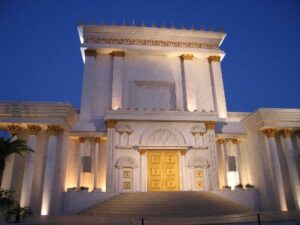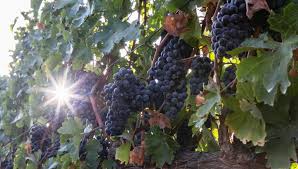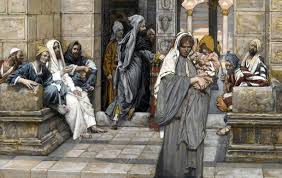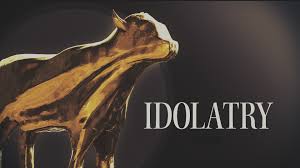Dk – A Prophet Like Moses 18: 15-22
A Prophet Like Moses
18: 15-22
A prophet like Moses DIG: What provision does God make for Isra’el? What was the duty of the prophet, as compared with a priest? What kinds of prophets were the Israelites to avoid? How do you account for the miraculous signs performed by false prophets? What was the responsibility of the true prophet of God? Of the people? Who is this prophet? How is He like Moshe? And when will He come? Why is there no continuous revelation today?
REFLECT: What are the tests for the false prophets today? Do you think the gift of prophecy still functioning today? Or is the canon of Scripture closed? What would a prophet add to the Word of God? What does the book of Revelation say about that (Revelation 22:18)? How can you tell the false prophets of today? What happens today when a prophecy does not come true? Are there any consequences for the false prophet?
In contrast with the dark magic of Canaanite sorcerers, witches, soothsayers, fortune-tellers, and mediums, the Israelites were to listen to ADONAI’s prophets alone.

For the second time in Deuteronomy, we are warned about the false prophets and teachers. The first time was in Chapter 13 (to see link click Cv – Beware of Idolatry), right at the beginning of the specific stipulations of the Covenant. And here, also, it is very strategically placed. It is right after the description of God’s selected teachers of the Torah, the Levites, and right before a foreshadowing of the coming of the Messiah.
At the time Moses spoke these words he was about 120 years old, and his death was imminent. YHVH had told him that he was not going to cross the Jordan River with the Israelites into the Promised Land (see Gj – The Death of Moses). That, of course, created a problem for them. What were they to do once Moshe was no longer with them? Who would be their mediator? Who would be able to speak to God on their behalf? Who would be able to pray for them? Moses had been very important to them, and his departure left a huge gap in Isra’el’s relationship with YHVH. But this passage speaks of a new Mediator who was coming, the only One who could truly intercede between God and mankind. ADONAI will raise up for you a prophet like me from among yourselves, from your own kinsmen. You are to pay attention to him (18:15). This is the only passage in the entire Torah where Moshe explicitly identifies himself as a prophet. Just as the 613 commandments of the Torah were given to show that mankind could not live up to it and obey it, Moses was given the task of being a mediator, but his failures showed that no man could be the mediator when he himself needed mediation. In effect, Moshe succeeded in showing us the way to the Messiah. And just like John the Immerser, he understood the difference between himself, and the One who was to come.406
The ultimate Prophet like Moses is Yeshua Messiah – the One who spoke God’s words and who provides deliverance for His people. Not even Joshua could be compared to Moshe, for since Moses there has not risen again a prophet in Isra’el like him (34:10a), with such power before mankind and intimacy with YHVH. Moses set the standard for every future prophet. Each prophet was to do his best to live up to the example of Moses until the One came who would introduce the Dispensation of Grace (see the commentary on Hebrews Bp – The Dispensation of Grace). During the first century AD the Pharisees and Sadducees were still looking for the fulfillment of Moses’ prediction (John 1:21). Peter said their search should have stopped with the Messiah (Acts 3:22-23).407
Just as when you were assembled at Horeb (which is the name used for Mount Sinai in Deuteronomy) and requested ADONAI your God, “Don’t let me hear the voice of ADONAI my God any more, or let me see this great fire ever again, for if I do, I will die!” On that occasion ADONAI said to me, “They are right in what they have spoken.” I will raise up a prophet like you for them from among their brothers. I will put My words in His mouth, and He will speak all that I command Him. Now whoever doesn’t listen to My words that this Prophet speaks in My Name, I Myself will call him to account (18:16-19).
Over the course of time, these verses concerning the prophet came to be recognized within Judaism as having a future and prophetic point of reference. The parallel between Yeshua and Moshe, expressed here prophetically, is striking. The prophet Moses, in his role as leader of the people and spokesman for YHVH, was instrumental in founding the first kingdom, the kingdom of Isra’el. Though he was followed by many genuine prophets in the history of that kingdom, none of them was comparable to him in the significance of his work under God’s direction. Likewise, Yeshua also marked the coming of a new Kingdom. It was not a political kingdom of this world, as was that of Moses, but the Kingdom of God. The prophet Moses mediated a covenant which was to be the constitution of the kingdom of Isra’el, whose true King was God. The prophet Jeremiah signaled the end of that age and pointed forward to a New Covenant (see the commentary on Jeremiah Eo – The Days are Coming, declares the LORD, When I Will Make a New Covenant with the People of Isra’el) and a new kind of Kingdom. Those prophetic pointers in the past found their fulfillment in Yeshua.408
Here are thirty ways in which Yeshua Messiah resembled Moshe:
1. Just as there were 400 years of silence before YHVH sent Moses to deliver Isra’el from her bondage to Pharaoh, so there were 400 years of silence before He sent His one and only Son, Yeshua the Messiah, to utterly deliver Isra’el from her ultimate bondage to sin and death.
2. Both Moshe and Yeshua were sent from God (Exodus 3:1-10; John 8:42).
3. Both Moshe and Yeshua were Jews (Exodus 2:1-2; Matthew 1:1-16; Luke 1-2; Hebrews 7:14). This is significant, since Muslims claim that Muhammad is the prophet that Moshe referred to, which is impossible, since the Messiah must be a Jew (John 4:24).
4. Both had faithful Jewish parents (Exodus 2:2; Hebrews 11:23; Matthew 2:13-14).
5. Both were born under foreign domination, Moses under Egyptian domination and Yeshua under Roman domination (Exodus 1:8-14; Luke 2:1).
6. Both were threatened by wicked kings (Exodus 1:15-16; Matthew 2:16).
7. Both Moses and Yeshua spent their early years in Egypt, miraculously protected from those who sought to take their lives (Exodus 2:10; Matthew 2:16).
8. Both rejected the possibility of becoming rulers in this age. Moshe was raised as a son in the royal family and could have enjoyed a lavish lifestyle as a powerful ruler, but he chose differently (Hebrews 11:24); Satan offered Yeshua rule over the kingdoms of this world (Matthew 4:8-9), but He rejected that offer and chose to suffer and die for us.
9. Both Moshe and Yeshua were “sent from a mountain of God” to free Isra’el. Moses was sent from a physical Mount Sinai in Midian; Yeshua was sent from a spiritual Mount Zion in heaven (Hebrews 12:22).
10. Both were initially rejected by the Jews (Exodus 32:1; Isaiah 53:3; Matthew 27:21-22; Romans 11:25).
11. Both were accepted by the Gentiles: Moshe by the Midianites (Exodus 2:14-22); Yeshua by the world (Acts 10:45; First Timothy 3:16).
12. Both were criticized by their families (Numbers 12:1; Mark 3:20-21).
13. Both knew YHVH face to face. God spoke directly to both Moses and Yeshua (Exodus 3:1-10; Deuteronomy 34:10; Luke 9:934-36). All other prophets received their revelation by visions or dreams (Deuteronomy 34:10; John 1:18). Both were authoritative spokesmen for ADONAI.
14. Both were teachers (Deuteronomy 4:1-5; Matthew 22:16; John 3:2).
15. Both revealed God’s name (Exodus 3:13-14; John 17:6 and 11-12).
16. Both were faithful to ADONAI (Numbers 12:5-7; Hebrews 3:1-2).
17. Both gave the people bread from heaven (Exodus 16:14-15; Matthew 14:19-20) and performed miracles (Exodus 4:21-28; Deuteronomy 34:10-12; John 5:36, 12:37-38).
18. Both were appointed as saviors of Isra’el: Moshe, as Isra’el’s deliverer from the bondage to Pharaoh; Yeshua as Isra’el’s deliverer from the bondage to the Adversary.
19. Both were shepherds of Isra’el. Moses led the Israelites through the wilderness (Exodus 3:1; and the entire book of Numbers); Yeshua led those who believed in Him as the Good Shepherd (John 10:10-11; Matthew 9:36).
20. Both were humble servants of the LORD (Numbers 12:3; Luke 2:46-47; Philippians 2:8-9).
21. Both fasted in the wilderness for forty days (Exodus 34:28; Matthew 4:2).
22. Both were mediators of the covenant of blood: Moses of the TaNaKh (Exodus 24:7-8) and Yeshua of the B’rit Chadashah (Matthew 26:26; Mark 14:26; Luke 22:20; Hebrew 9:11-5; First Corinthians 11:25; Second Corinthians 3:6).
23. Both offered to die on behalf of the people’s sins (Exodus 32:30-33; John 17).
24. Just as Moshe instituted the Passover on the 14th of Nisan as the means by which the Angel of Death would pass over those Israelites who trusted in God’s promise regarding the blood of the lamb (Exodus 12:11-12), so Yeshua offered Himself as the sacrificial Lamb of God who takes away the sins of the world (John 1:29).
25. Just as Moses brought about the “resurrection” of the children of Isra’el as they passed through the Sea of Reeds; so Yeshua because the Firstfruits of resurrection as He rose from the dead.
26. Just as the Torah was given to Isra’el fifty days after the Exodus from Egypt on Shavu’ot, so Yeshua sent the Ruach Ha’Kodesh to form the Church fifty days after His resurrection.
27. Both of their faces shone with the glory of heaven – Moshe on Mount Sinai (Exodus 34:34-35) and Yeshua on the Mount of Transfiguration (Matthew 17:2).
28. As Moshe lifted up the bronze serpent in the wilderness to heal the people (Numbers 17:11), so Yeshua was lifted up on the cross to heal all believers from their sin (John 12:32).
29. As Moses conquered the great enemy of Isra’el, the Amalekites with his upraised arms (Exodus 17:11), so Yeshua conqured our ultimate enemy of sin and death by His upraised arms on the cross (John 19:18).
30. As Moshe sent twelve spies to explore Canaan (Numbers 13), so Yeshua sent twelve apostles to reach the world (Matthew 10:1); and as Moses appointed seventy rulers over Isra’el (Numbers 11:16-7), so Yeshua anointed seventy disciples to teach the nations (Luke 10:1).
How was Yeshua a prophet like Moshe? Like Moshe, He was a Jew, a leader, a prophet, a lawgiver, a savior, a teacher a priest, an anointed one, a mediator between God and mankind – speaking the words of God – and like Moshe, He offered to die for the sins of the people.
The Prophet to come was to speak the Word of God, and only His Word (John 5:30, 12:49; Philippians 2:16). But He was not coming right away. In fact, some 1,500 years separated Moshe from Yeshua. So, what were the Israelites supposed to do in the meantime? Yes, there would be prophets to come: Joshua, Samuel, Elijah, Elisha, Joel, Isaiah, Jeremiah, Ezeki’el, Dani’el, and others, but they were neither like Moses, nor like the Prophet to come. How can we separate the true prophets of God from the false prophets of the Adversary? Although Moses would leave after the Torah was completed, God never did. He was present with them in His Word. Therefore, the LORD gives us some further instruction that is still very practical for us today.409
Dear Mighty Heavenly Father, Praise Your mighty power, holiness and love. Heaven will be so wonderful that we can’t even imagine the great joy for all who love you and enter heaven as your children (John 1:12). Things no eye has seen and no ear has heard, that have not entered the heart of mankind – these things God has prepared for those who love Him (First Corinthians 3:9 quotes Isaiah 64:4).
Praise You for wanting all to enter heaven and by Yeshua’s death and resurrection (Second Corinthians 5:21). You have opened the door to all who chose to love and to follow God (Romans 10:9-10). He is being patient toward you – not wanting anyone to perish, but for all to come to repentance (Second Peter 3:9c). The choice of each person’s eternal destiny is decided by who their heart loves. God looks to see if they have repented from their selfish ways and chosen to love and follow Him. The beloved apostle John prophecies that terrible plagues that God will send in the last days to turn people to look upward to Him. Very sadly many will not choose repentance. People were scorched with fierce heat, and they cursed the name of God – the One who has power over these plagues. But they did not repent, to give Him glory (Revelation 16:9). It is a real choice of eternal life of great joy or suffering the wrath of God in eternal punishment. He who trusts in the Son has eternal life. He who does not obey the Son will not see life, but the wrath of God remains on him (John 3:36). Father God, we love You and look forward to praising and worshiping You forever. Please do whatever it takes to open the hearts of my friends and family so they choose eternal life by loving You as first in their lives. In Yeshua’s holy name and power of His resurrection. Amen
False prophets: Given the serious nature of failure to obey the prophetic word, Moses now turns to the matter of distinguishing between true and false prophecy.410 Now should you say in your heart, “How would we recognize the word that ADONAI has not spoken (18:21)? Two tests could be used to determine whether a prophet was speaking God’s words.
First, the prophet’s message had to be in accordance with God and His Word. But the prophet who presumes to speak a word in My Name, which I have not commanded him to speak, or who speaks in the name of other gods – that prophet will die (18:20). As a result, anyone claimed to say a word from the LORD had to be right 100 percent of the time, and they needed to give shorter near historical prophecies to prove that they were, indeed, a prophet. Their life should be an open book for all to see, just like the elders in the B’rit Chadashah. The true prophetic office in the Dispensation of the Torah demanded 100 percent accuracy because they declared a new revelation from YHVH.
Second, his prophecy must come true. When a prophet speaks in the name of ADONAI, and the prediction does not come true — that is, the word is not fulfilled — then ADONAI did not speak that word. The prophet who said it spoke presumptuously; you have nothing to fear from him or any reprisals such a one might predict against them (18:22). There were no second chances. They must be put to death. By permitting these so-called “prophets” to mix error with messages supposedly “fresh from God’s lips,” the floodgate would be open to false teaching, confusion, error, fanaticism, and chaos.
How could a message genuinely inspired by YHVH be tainted with error or lies? True, inspired prophecy would have to line-up with Scripture. If they do not speak according to the Torah, it is because they have no light (Isaiah 8:20). It is the very Word of God. Every prophetic revelation implies, “This is what the LORD is saying” – if not explicitly, then implicitly. True prophecy is not the prophet’s opinion or speculation. It is not a mere impression in his mind. It is not a guess or a divination. It has nothing whatsoever to do with soothsaying. It is a word from ADONAI (First Samuel 3:1; Jeremiah 37:17). And since the prophet purports to speak for God Himself, he is held to the highest possible standard of accountability, and judged with the utmost severity if he prophesied falsely.411
No continuous revelation today: The gift of prophecy was still in use during the First Century (Romans 12:6; First Corinthians 12:10; Ephesians 4:11). There were prophets in B’rit Chadashah times: Agabus (Acts 11:27-28, 21:10-11); Ana the prophetess (luke 2:36-38); Barnabas, Simon called Niger and Lucius the Cyrene (Acts 13:17); Judas and Silas (Acts 15:32); the four daughters of Philip who prophesied (Acts 21:9); and the apostle John who prophesied in the book of Revelation. Prophets foretold either near historical events or far eschatological events. Once Revelation was completed, however, the canon of Scripture was closed at the end of the First Century. There was no need for any further revelation. The Ruach ha-Kodesh had equipped believers with everything they would need to live a victorious life, and the spiritual gift of prophecy passed away. Hence, there is no continuous revelation.

























